Did you know that over 73% of homeowners believe that upgrading to modern epoxy floor color options dramatically increases their home’s value and aesthetic appeal? This eye-opening statistic doesn't just point to a home improvement trend—it reveals a transformation in how people see their garage floor, basement, or living space. Epoxy floor color options are no longer just about protection and durability; they’re about making a bold statement and unlocking dramatic design style potential with the wide range available. In this article, we pull back the curtain on the secrets of epoxy color, helping you find the perfect color options for your style—whether you want subtle solid colors, striking metallics, or a show-stopping custom finish.
Epoxy Floor Color Options: Transforming Spaces with Unique Style
Investing in the right epoxy floor color options can instantly transform any space in your home or business. From contemporary garages with high-gloss finishes to cozy living areas featuring earth-toned epoxy colors, the latest floor coating solutions are about more than just surface protection. Your choice in garage floor paint color profoundly affects both the functionality and atmosphere of your rooms. With the ever-expanding selection of solid color, flake floor, and custom epoxy options available, homeowners have complete control over the ambiance of their interiors and exteriors.
Modern epoxy floor color options not only protect underlying concrete floors from stains, chemicals, and abrasions, but they also offer a durable floor solution that is easy to clean and maintain. By selecting a shade that complements your unique design style—whether that’s sleek minimalist gray or a vibrant collection of custom colors—you can dramatically enhance curb appeal and home value. In this guide, we’ll showcase trendy, classic, and innovative epoxy floor color options for garage floors, living rooms, workshops, and more, helping you make a smart, stylish, and lasting investment.
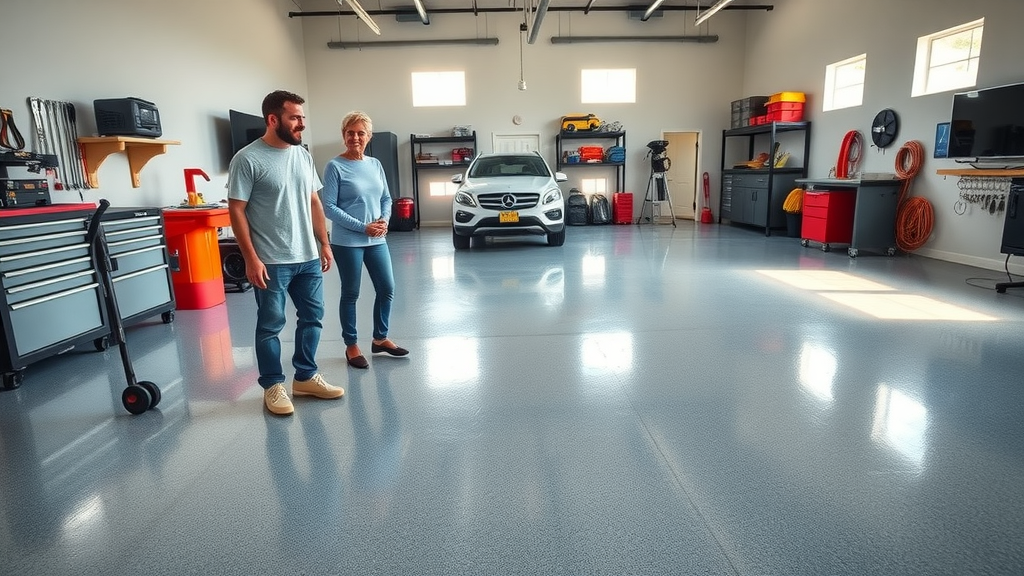
"Over 73% of homeowners believe that upgrading to modern epoxy floor color options dramatically increases their home's value and aesthetic appeal."
What You'll Learn About Epoxy Floor Color Options
- The variety of epoxy floor color options available
- How different colors complement garage floor and interior spaces
- Benefits and unique features of solid color and custom color options
- Tips for choosing the best epoxy color for your floor coating
- Price considerations by color and style
- Answers to common epoxy floor questions
A Comprehensive Guide to Epoxy Floor Color Options for Garage Floors and Beyond
With so many epoxy floor color options available, it’s essential to understand which hues and finishes can best elevate your home, garage, or commercial floor. Our expert guide explores everything from classic solid color coating systems to eye-catching metallic and flake floor designs. Whether you want an easy-to-clean floor for the garage or a luxurious surface for your living room, the possibilities with epoxy are almost endless. Let’s break down the most popular options for every space.
The right color selection can make or break the impact of your newly coated floor. For garage floors, homeowners often favor durable solid colors or flake floor patterns that resist staining and create an inviting workspace. Meanwhile, commercial and residential interiors might benefit from uniquely layered metallic epoxy colors or even custom graphics. Our comprehensive rundown takes a close look at the trending colors, finishes, and techniques so you can confidently choose the perfect palette for your needs.
Exploring Popular Epoxy Floor Color Options: Garage Floor, Solid Colors & More
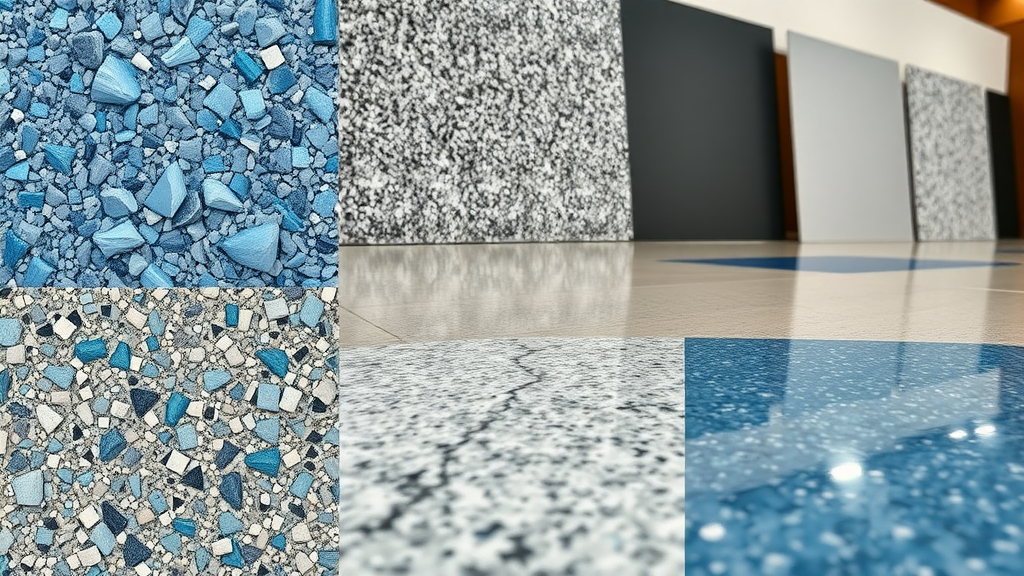
Solid color epoxy floor finishes are a timeless option, preferred for their clean look and ability to mask imperfections in concrete floors. Popular colors like gray, tan, and beige suit modern and traditional interiors alike, offering great colors that suit any design style. For those seeking extra flair, metallic and flake epoxy color options introduce texture, depth, and exceptional uniqueness to your garage floor or living space. The flecks and reflective pigments found in these coatings not only make surfaces more visually engaging but can also help hide wear and tear.
- Solid color epoxy floor finishes
- Metallic and flake epoxy color options
- Custom and designer epoxy floor colors
- Trending epoxy colors for garage floors and living spaces
Custom color epoxy and designer finishes are the ideal choice if you want your floors to become the main feature of a room. Utilizing advanced epoxy color technologies, these coatings can be color-matched to favorite paint chips, decor, or even company branding. Homeowners are increasingly demanding dramatic floor colors—such as vibrant reds, deep blues, and multi-layered metallics—that reflect their individuality. Current trends highlight blues and grays for garages, while bold bronzes and marbled whites top the charts for kitchens and offices. No matter your vision, there’s a garage floor or interior epoxy color to bring it to life.
How to Match Epoxy Floor Color Options with Your Flooring System and Decor
Matching the right epoxy floor color options with your existing flooring system and decor is both an art and a science. Start by considering the primary function of your space. For garage floors or workspaces, opt for floor paint in neutral solid color selections that hide tire marks and oil stains while providing a classic look. Meanwhile, indoor areas like basements, kitchens, or showrooms can benefit from bespoke color options that coordinate with furniture and wall paint.
Think about how light plays off the color of your chosen epoxy floor. Brighter colors, such as whites or silvers, can increase reflected light and make spaces appear larger, while darker or bolder epoxy colors bring warmth and energy. For creative projects, custom color blends and multi-tonal finishes open up endless design possibilities. When in doubt, consult a professional for garage fx ideas and color-matching services so your floor coating system truly enhances your home’s style and function.
"Choosing the right epoxy floor color can enhance both the mood and functionality of your space." – Leading Flooring Designer
Understanding the Benefits of Different Epoxy Floor Color Options

The advantages of thoughtfully chosen epoxy floor color options go well beyond just looking great. Let’s explore the real-world benefits that these systems bring to residential, commercial, and garage floors:
- Durability and protection from stains or chemicals: Epoxy floor coating seals and shields concrete floors from corrosive automotive fluids, foot traffic, and household spills, making your investment last much longer.
- Enhanced style and curb appeal for garage floors: Great color options drive up the resale value and create inviting spaces you’ll be proud to show off, whether it’s a family garage or showroom.
- Light reflection for improved brightness: Light-colored or high-gloss epoxy floors brighten garages and basements, reducing the need for additional lighting.
- Ease of maintenance for various color options: A durable epoxy system is easy to clean, especially when compared to traditional concrete or floor paint.
- Compatibility with different flooring systems: Epoxy floor color options adapt seamlessly to nearly any concrete floor, including those in commercial and residential properties.
Whether you choose a solid color, multi-color flake floor, or custom designer system, your new floor coating becomes a durable, attractive, and functional asset to your home or workspace. Plus, with the right care, your epoxy floor colors will maintain their vibrancy and gloss for many years.
| Color Type | Typical Use | Style Impact | Cost Range | Maintenance Level |
|---|---|---|---|---|
| Solid Color | Garage Floors, Basements | Clean, Classic, Timeless | $3–$6/sq ft | Low |
| Custom/Designer | Kitchens, Offices, Showrooms | Unique, Personalized, Luxurious | $5–$12/sq ft | Low to Moderate |
Epoxy Floor Color Options and Floor Coating Systems: What to Consider
Choosing the best epoxy floor color options involves more than simply picking a visually appealing shade. When selecting your garage floor or living area coating, take into account the surface’s usage, existing design style, overall lighting, and the type of floor coating system you want. In high-traffic and demanding spaces—such as workshops or busy garages—it’s often wise to prioritize durability over trend-driven color options. Meanwhile, for feature rooms or creative spaces, you may lean toward metallic and custom epoxy colors to make a memorable impression.
Don’t forget about the properties of the underlying concrete floor. Some colors and styles can help disguise minor cracks or imperfections, while lighter tones make small rooms feel airier. Customization is possible with nearly every epoxy system, allowing homeowners and businesses to blend brand colors, create intricate patterns, or achieve a completely unique finish. To achieve the best results, always work with a professional installer who understands how different epoxy floor color options interact with your flooring system for durability and aesthetics.
How Epoxy Floor Coating and Epoxy Colors Impact Durability
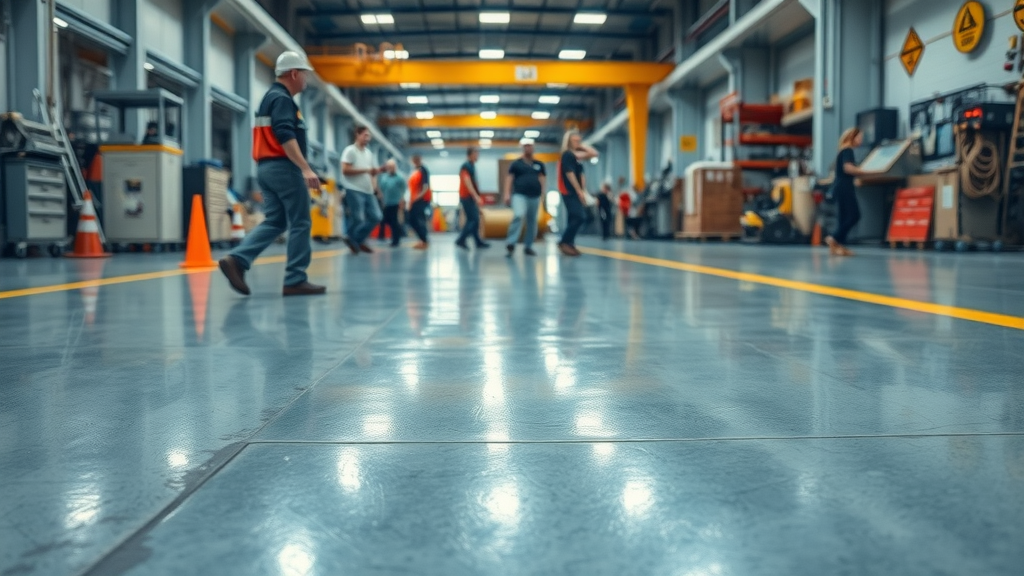
The specific epoxy floor coating and chosen color options can impact both the performance and longevity of your floor. Lighter solid colors are often better at reflecting sunlight and heat, lowering surface temperatures and enhancing comfort. Darker colors and metallics may mask dirt and scuffs more efficiently, making them ideal for commercial and industrial settings where the floor is subject to high wear.
A high-quality epoxy system is inherently tough, but it’s important to note that certain pigments and finishes could behave differently under constant UV exposure or heavy foot traffic. If you’re coating an outdoor area or a sunny room, opt for UV-stable epoxy colors, or consider adding a clear topcoat to preserve vibrancy. The wide range of color options ensures you’ll find a finish engineered for both style and lasting protection, ensuring your floors remain beautiful and resilient for years, regardless of traffic and use.
Choosing Epoxy Floor Paint: Finding the Best Color Options for Your Needs

When it comes to choosing the right epoxy floor paint and color for your space, start by assessing your needs and goals. Do you want a garage floor that hides dust and stains, or are you after a sleek, modern finish for your living room? For high-traffic or commercial floors, you might opt for a flake floor system with a complex color blend that conceals wear while adding texture. Those seeking a dramatic effect can explore designer metallic floors or create custom color blends that match their unique vision.
If you’re uncertain, request sample boards or color fan decks from your floor coating provider. This hands-on approach lets you see how different epoxy floor colors look under your natural or artificial lighting before you commit. The best color choice not only meets your style preferences but also ensures the easiest possible maintenance and highest value for your investment. For the ultimate in customization and satisfaction, trust an experienced installer to help you mix and match the perfect color options, transforming ordinary concrete epoxy into an extraordinary statement piece.
People Also Ask: Epoxy Floor Color Options
What is the best color for epoxy flooring?
Answer: The best epoxy floor color options often depend on the space and intended use; popular choices include neutral grays for garage floors, high-gloss whites for modern interiors, and bold custom colors for unique styles.
What are the disadvantages of epoxy floor paint?
Answer: While epoxy floor color options offer stunning finishes, some disadvantages include sensitivity to UV exposure, potential for slippery surfaces, and the need for professional floor coating for best results.
How much does it cost to epoxy a 20x20 garage floor?
Answer: Epoxy floor color options for a 20x20 garage floor generally cost between $1,200 and $3,800 depending on the chosen colors, floor coating thickness, prep work, and design complexity.
Which color epoxy is best?
Answer: The best epoxy color for your floor depends on your desired aesthetic, lighting, and maintenance needs. Grays and tans are classic for garage floors, while custom and metallic epoxy colors bring a unique style.
Frequently Asked Questions: Epoxy Floor Color Options
- Can I customize the color of my epoxy flooring system?
- How long do epoxy color floors last?
- Are certain epoxy colors harder to maintain than others?
- How do epoxy floor color options differ for concrete epoxy applications versus finished flooring systems?
Key Takeaways: Unveiling the Best Epoxy Floor Color Options
- Broad variety in epoxy floor color options for every taste
- Proper color selection elevates garage floor and living spaces
- Price, durability, and maintenance should factor into your decision
Conclusion: Discover Your Perfect Epoxy Floor Color Options
From timeless grays to striking metallics, epoxy floor color options can turn every room and garage floor into a showpiece.
Call us now to get your free quote!!
When exploring epoxy floor color options to enhance your space, it’s beneficial to consult authoritative resources that delve into the latest trends and practical considerations. For instance, the article “Epoxy Flooring Trends: Top Colors and Designs for 2024” discusses the rising popularity of warm terracotta hues and earthy tones, highlighting their ability to create a cozy and inviting atmosphere. (garagecoatingpros.com) Additionally, “Garage flooring ideas that go the distance – durable finishes perfect for cars and workshops” provides insights into durable and practical garage flooring options, emphasizing the importance of thorough surface preparation and the benefits of epoxy and resin coatings for longevity and customizable aesthetics. (homebuilding.co.uk) These resources offer valuable perspectives on selecting epoxy floor colors that align with both current trends and functional requirements.
 Add Row
Add Row  Add
Add 

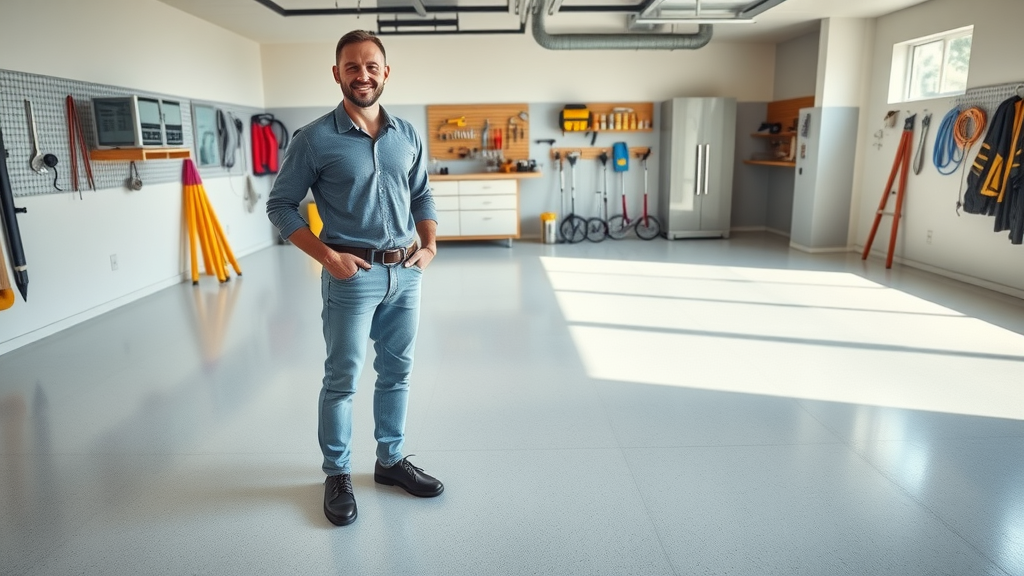
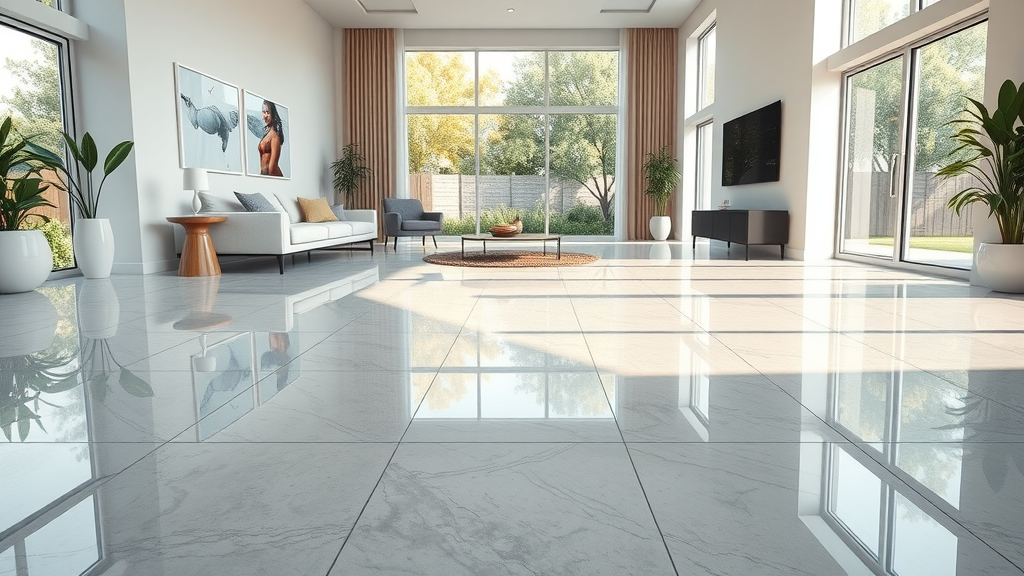
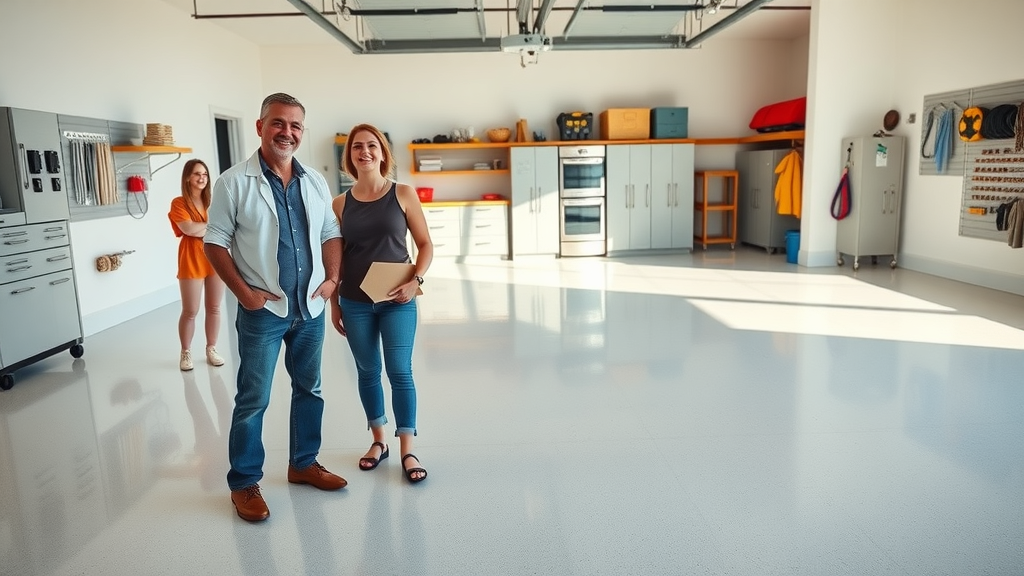
Write A Comment